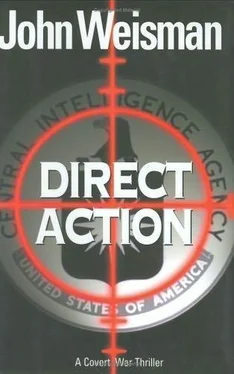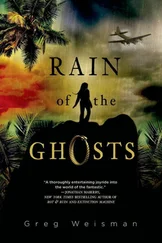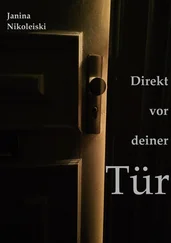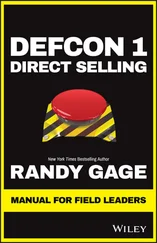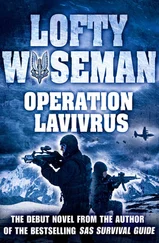“The answer is no,” Wyman snapped. “Let me be blunt here, Tom: 4627 is not in the business of staging coups at CIA.”
“Maybe we should be.”
“Perhaps you and Reuven should worry more about refining the details of the current operation to ensure we don’t have any flaps and less about the machinations of Washington politics.” There was about thirty seconds of dead air. Then Tony Wyman said, “Thank you, MJ. Your contributions have been enormously valuable.” He picked up the two sheets of time line and the yellow legal pad on which MJ had written her notes, and tucked them under his arm. “You guys keep at it,” he said. “I’m going to make some phone calls.”
When Wyman had left the room, Tom turned to Reuven and spoke in Arabic. “What do you think?”
The Israeli shrugged. “I think he’s a boss. Bosses do what bosses do.” Reuven’s cell phone chirped. He flicked it open and said, “Parle-moi.” Fifteen seconds later, he snapped the instrument shut. “The shipment just left Orly. Our guy’s headed for Boissons Maghreb,” he said. “If he loads any containers of olives into his car, we’ll snatch him.” He looked at Tom. “Let’s get to the warehouse.”
RUE DU CONGO, PANTIN
4:54 P . M .
They were using the small EUREC truck. Reuven, in repairman’s coveralls, a black knit cap, and a bushy mustache attached to his upper lip sat behind the wheel, a cell phone clapped to his ear and a cigarette dangling from the corner of his mouth. Tom was set up in the rear of the blueÉCLAIRAGE &SIGNALIZATION truck behind a black gauze sniper’s screen that made him invisible to anyone staring through the windshield but didn’t impede the vision of his light-gathering Steiner binoculars or the telephoto lens of the digital Nikon single-lens reflex he’d set up on a tripod. Behind Tom, Milo stretched out, eyes closed, on a dirty cot mattress.
Tom turned toward Milo. “Where are the Algerians?”
“Around,” Milo grunted.
“Not obvious, I hope.”
Milo propped himself up on an elbow. “Did you see them?”
“Not yet.”
“You won’t.” The Corsican lay back down and rested an arm across his eyes.
They’d set up on the south side of rue du Congo, just past the intersection of rue Auger, giving themselves an unobstructed view of the block-square commercial zone of small warehouses, contractors’ storage sheds, and light-industrial companies. They were roughly 175 yards from Bois-sons Maghreb, well within the range of Tom’s 500mm telephoto lens. Hamzi’s facility was, in fact, not a proper warehouse at all, but a deep, moderately wide storefront with basement storage. The place sat between an electrical contractor and a restaurant-supply house. The heavy steel trap-doors to the basement were propped open and the hydraulic lift was level with the sidewalk. Obviously, they were waiting for a shipment.
5:19. The truck from Orly eased up onto the curb and blocked the sidewalk to make unloading easier. Two burly Arabs unbuckled the rubberized canvas sides of the truck, revealing three plastic-wrapped pallets holding what appeared to be cases of wine and two pallets on which were stacked dozens of two-foot-high yellow plastic barrels of olives. Tom shot a dozen or so photos.
5:22. It was growing dark rapidly. As Tom affixed the night-vision device to the camera lens, the truck crew stopped work and lit up cigarettes. That, too, was captured on the Nikon’s memory stick.
5:47. Hamzi arrived in a champagne-colored Mercedes 500-series coupe with Paris plates whose grille and bumpers had been gold-plated. The Moroccan drove up onto the sidewalk and parked.
Reuven heard Tom say, “Pimp your ride much, Yahia?” As the Moroccan exited the car, Tom muttered to himself and shot more pictures.
5:48. Hamzi took a look around-a wary coyote sniffing the wind. He looked much the same as he had in Shahram’s surveillance photo: clean-shaven, a round, dark face set off by thick-framed eyeglasses with tinted lenses, and a full head of curly black hair. He was dressed in a dark raglansleeved wool overcoat, under which he wore his customary light-colored suit and open-necked shirt. The Moroccan’s body language betrayed nothing untoward. He turned his attention to the cargo and gesticulated, berating the crew, who ground out their cigarettes on the pavement and resumed unloading.
5:53. It had gone completely dark. The first load of wine cartons descended into the Maghreb cellar. The pallets of olives were still untouched. Tom increased the power of the lens, focusing on Hamzi’s head, watching as the Moroccan watched the elevator disappear. Suddenly Hamzi whirled, looking straight into Tom’s lens, as if he sensed the American’s presence.
Rattled, Tom hit the shutter and captured the expression on Hamzi’s face. As he did, it occurred to him that the Moroccan might have heard the shutter, even though the Nikon’s shutter was digital not mechanical. Even though Tom was more than a hundred and fifty yards away and the truck was just one shadow among many.
Tom was nervous. He edged forward and whispered, “Time to make the adjustment, Reuven?”
He had no evidence that they’d been compromised. But there was something about Hamzi’s actions that made Tom uneasy. It was almost as if the Moroccan knew he was being watched. Was it them? Was it the Algerians? Had there been a slip somewhere? Ops like this were risky and hugely prone to compromise. You could never be sure what was what. Tom said, “Reuven?”
“Your op,” the Israeli said. “Your call.”
Tom chewed his upper lip for several seconds, watching Hamzi. The Moroccan was talking to his crew. Then he turned away and looked into the darkness, staring straight into Tom’s eyes once again. Tom almost dropped the camera onto his lap. “We move, Reuven.”
5:55:14P.M. Tom slapped the Israeli’s shoulder. “Go.”
Reuven turned the ignition key, eased the truck off the curb, drove fifty feet, and without signaling made a quick right turn into a narrow passageway heading south. Once they were out of sight of rue du Congo, the Israeli floored the truck and sped eighty yards to where the passageway spilled into a narrow, crooked street that ran east to west. Before Reuven had started the engine, Tom had already collapsed the tripod. Once the truck was moving, he ripped the sniper screen down and stuffed it, along with the tripod, camera, NV, and binoculars, into a black canvas satchel.
5:55:47. At the end of the passageway, Reuven brought the truck to a stop and jumped onto the pavement. Tom followed him. The Israeli rapped the side of the truck with his knuckles. “Milo-back to the warehouse, please.”
“My pleasure.” The Corsican slid behind the wheel and drove off.
5:55:56. They’d prepositioned a black Audi sedan. Reuven used a remote control to unlock the door of the big car and switch the ignition on. The car’s side and rear windows were heavily tinted and its interior lights had been turned off.
5:56:11. Tom climbed into the passenger seat. He clutched the satchel on his lap, unzipped the top flap, and retrieved the sniper’s gauze veil. “Go.”
5:56:25. Reuven edged the car into the street. All lights out, he drove about sixty yards and stopped.
5:56:36. Tom handed the Israeli one side of the sniper’s veil.
5:56:38. Reuven took it and pressed the corner up against the far upper left-hand side of the windshield, attaching the gauze with a small tab of Velcro. Then he attached the bottom to a Velcro patch on the lower edge of the dashboard. Tom mirror-imaged Reuven’s actions on the right-hand side of the windshield.
5:56:43. They were perhaps sixty feet south of the rue du Congo intersection. As Tom retrieved the camera, Reuven edged the Audi forward crawling foot by foot until they were able to see the Boissons Maghreb storefront.
Читать дальше
